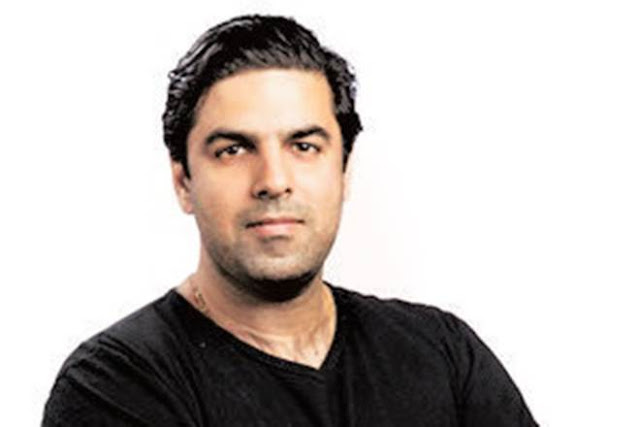The co-founder of engineer.ai wants firms to develop their own apps using his programme which he says requires little or no tech skills.
Having a fast, personalised app is key to a company’s online presence and marketing ability. In 2017, the total amount of app downloads hit 197 billion which is expected to surge to 352 billion by 2021, according to Statista. Here, Sachin Dev Duggal, co-founder of Engineer.ai explains how he wants to bring the cost of creating an app down for businesses and make it easier than ever to do so.
Tell us more about the company. What’s your background and what is the company’s vision?
We founded Engineer.ai in 2016, and the ‘Builder’ platform will be launching in June this year. The company was founded because we wanted to create a platform that would enable anyone to make a software idea into a reality without needing expertise knowledge in development and coding.
The company was founded in partnership with my university friend Saurabh Dhoot. I’ve invested in over 20 technology start-ups, founding Nivio, one of the world’s first cloud computing companies and Shoto, a photo software streaming company that uses AI and analytics to bring together photo experiences from a time and place between selected audiences. Prior to this, I worked at Deutsche Bank at the age of 17, making me the youngest employee at the company. In 2009, I was named a World Economic Forum Technology Pioneer. I studied at Imperial College London, where I met the now co-founder of Engineer.ai, obtaining a degree in Business Engineering as well as holding a degree in Entrepreneurial Master’s Programme from MIT.
With the Builder platform we’re aiming to bring down the price of building an app; whether that’s on mobile, web, e-commerce or Internet of Things (IoT). The more people that build a specific type of product, the cheaper it becomes for everyone to build, as the marketplace is being utilised more. Unlike anyone else, we take the ultimate price risk. 90 per cent of the time we will do better than we promise, but 100 per cent of the time we will match what we say.
With Builder, you create an application, buy the update ‘insurance’ from us and then buy all the hosting for example cloud, micro-services or whatever you need to keep the platform running and that’s the retention part; otherwise most people will build their initial idea and then not stay.
Read full story @ https://www.growthbusiness.co.uk/entrepreneur-interview-sachin-dev-duggal-co-founder-of-engineer-ai-2554358/
Having a fast, personalised app is key to a company’s online presence and marketing ability. In 2017, the total amount of app downloads hit 197 billion which is expected to surge to 352 billion by 2021, according to Statista. Here, Sachin Dev Duggal, co-founder of Engineer.ai explains how he wants to bring the cost of creating an app down for businesses and make it easier than ever to do so.
Tell us more about the company. What’s your background and what is the company’s vision?
We founded Engineer.ai in 2016, and the ‘Builder’ platform will be launching in June this year. The company was founded because we wanted to create a platform that would enable anyone to make a software idea into a reality without needing expertise knowledge in development and coding.
The company was founded in partnership with my university friend Saurabh Dhoot. I’ve invested in over 20 technology start-ups, founding Nivio, one of the world’s first cloud computing companies and Shoto, a photo software streaming company that uses AI and analytics to bring together photo experiences from a time and place between selected audiences. Prior to this, I worked at Deutsche Bank at the age of 17, making me the youngest employee at the company. In 2009, I was named a World Economic Forum Technology Pioneer. I studied at Imperial College London, where I met the now co-founder of Engineer.ai, obtaining a degree in Business Engineering as well as holding a degree in Entrepreneurial Master’s Programme from MIT.
With the Builder platform we’re aiming to bring down the price of building an app; whether that’s on mobile, web, e-commerce or Internet of Things (IoT). The more people that build a specific type of product, the cheaper it becomes for everyone to build, as the marketplace is being utilised more. Unlike anyone else, we take the ultimate price risk. 90 per cent of the time we will do better than we promise, but 100 per cent of the time we will match what we say.
With Builder, you create an application, buy the update ‘insurance’ from us and then buy all the hosting for example cloud, micro-services or whatever you need to keep the platform running and that’s the retention part; otherwise most people will build their initial idea and then not stay.
Read full story @ https://www.growthbusiness.co.uk/entrepreneur-interview-sachin-dev-duggal-co-founder-of-engineer-ai-2554358/

This is something really nice as several people don't have technical knowledge.
ReplyDeleteI read this blog and I like the way Builder works and proceed the things
ReplyDeleteCorrect in today's world online presence and marketing become essential.
ReplyDelete